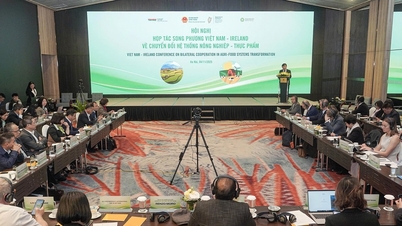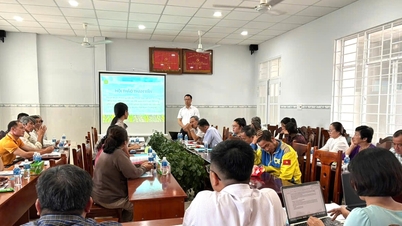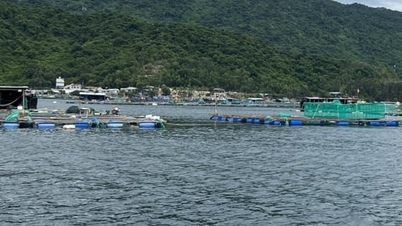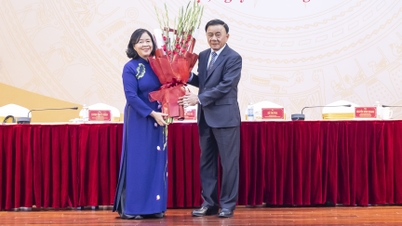The Paris Agreement and the “voluntary” weakness
Adopted in 2015, the Paris Agreement sets a clear, but non-binding, global target: to keep temperature increases well below 2°C (ideally closer to 1.5°C) above pre-industrial levels. It also calls on countries to chart science- based pathways to net-zero emissions at the national and global levels. It requires countries to submit and update five-year action plans and transparently report on their progress.

The problem with the 2015 Paris Agreement, however, lies in its core “voluntary” nature – a non-binding promise by countries to cut greenhouse gas emissions. And in a world that is still so divided, “voluntary” is a luxury that often causes endless debate.
This is partly reflected in the fact that as of the end of September 2025, only 64 parties had submitted their commitments called Nationally Determined Contributions (NDCs), despite the Paris Agreement requiring them to be submitted by February 2025. The lack of strong commitments from major emitters has seriously undermined the effectiveness of the Paris Agreement's ambition-boosting mechanism.
Combating climate change is too urgent.
By now, not only the leaders attending COP30 but also every ordinary person on this planet can feel the serious impact of climate change.
According to the United Nations, 2024 was the warmest year on record globally, with average temperatures exceeding pre-industrial levels by nearly 1.5°C, and January 2025 was the warmest month on record. This stark reality has been demonstrated by a series of climate disasters that have occurred around the world in recent years and are becoming increasingly severe.
Statistics have also shown that despite significant progress from the Paris Agreement, largely thanks to the rapid growth of cheap renewable energy, global greenhouse gas emissions continue to rise, reaching a record 57.7 GtCO2e in 2024 – a 2.3% increase compared to 2023.
Current scenarios, based on full implementation of all the latest commitments, still result in a projected global temperature rise of 2.3°C to 2.5°C by the end of the century. Meanwhile, current policies see the world heading towards warming of 2.8°C – a disaster for all of humanity.
US withdrawal and unambitious commitments
In that context, consensus among countries and parties is the most necessary thing to solve this urgent global crisis. However, consensus is also something of a luxury in today's world.
The most worrying event of recent memory is the US decision to withdraw from the Paris Agreement (which comes into force in January 2026). This is not only a blow to the spirit of global cooperation. Analysis has shown that this withdrawal will cancel out about 0.1°C of progress in global warming projections.
Not only has the US withdrawn, but China’s pledge to cut carbon emissions by 7% to 10% from peak levels by 2035 has also been criticized as too weak. In addition, delays and “unconvincing” commitments from major emitters such as the European Union have also undermined the prospects of any breakthrough at COP30.
It is also worth noting that the success of COP30 will depend on the top agenda of implementing the new Common Quantitative Target on Climate Finance (NCQG), with the ambition to mobilize at least USD 300 billion annually for developing countries by 2035 and strive for USD 1.3 trillion annually. However, this task is considered very far away.
Hope from ICJ ruling
Fortunately, in the gloomy context above, there are still rays of hope ahead. First of all, there are still many countries and global organizations that are resolutely fighting climate change and making strong commitments at COP30.
Furthermore, in July 2025, after a multi-year campaign initiated by Vanuatu and supported by many countries, the International Court of Justice (ICJ) issued an unprecedented and unanimous advisory opinion on the obligations of states regarding climate change.
The United Nations’ highest court has ruled that nations have a duty to protect the environment from greenhouse gas emissions and to take necessary action to do so. The ruling also confirmed that limiting global warming to 1.5 degrees Celsius is in fact a target to strive for and is no longer “voluntary” .
Agreeing on mechanisms to ensure effective enforcement of ICJ rulings is a top priority and a long-awaited task at COP30. And if successful, it could resolve the “voluntarism” paradox that has persisted for the past 10 years in the 2015 Paris Agreement.
Source: https://congluan.vn/thoa-thuan-paris-2015-tron-10-nam-va-lieu-thuoc-thu-tai-cop30-10316792.html




![[Photo] Da Nang: Hundreds of people join hands to clean up a vital tourist route after storm No. 13](https://vphoto.vietnam.vn/thumb/1200x675/vietnam/resource/IMAGE/2025/11/07/1762491638903_image-3-1353-jpg.webp)











































































































Comment (0)